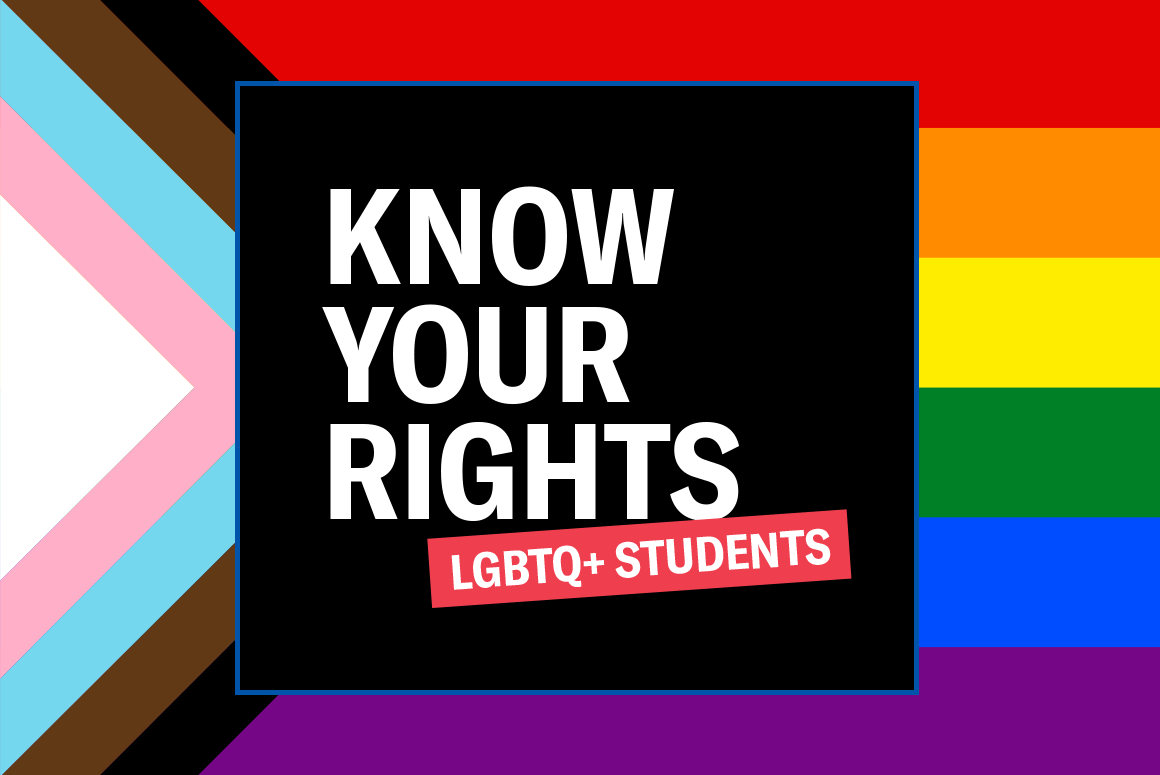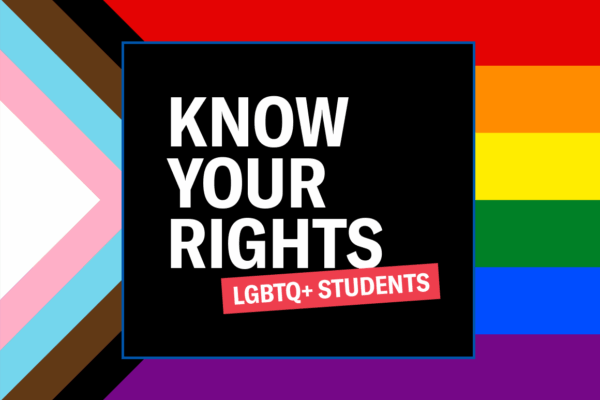
You Have the Right to Be Yourself
LGBTQ+ Students' Rights at School in Maryland. Know Your Rights about gender, dress codes, self-expression, and more.
Heading Back to School?
Read our blog roundup as you head into the new school year.
Documents
Related Content
Jun 21, 2023

Dancing on My Own: How to Celebrate Pride & Queer Liberation While in Your Healing Era
Our wish is that now, more than ever, that these songs bring you unfiltered joy on your darkest days and inspire you to dance, without inhibition, with somebody who truly loves you.
Jun 29, 2022

Pride Is More Than a Month – It's a Mentality
As June comes to a close, we simply cannot ignore the energy shift over the last week. I entered this Pride Month with a renewed sense of hope and peace, and unfortunately, I’m ending it in fear and rage.
Jun 29, 2022

EL ORGULLO LGBTQ+ ES MÁS QUE UN MES – ES UNA MENTALIDAD
Ahora que el mes de junio está terminando, simplemente no podemos ignorar el cambio de energía durante la última semana. Comencé este Mes del Orgullo con un sentido renovado de esperanza y paz y, lamentablemente, lo estoy terminando con miedo y rabia.
Stay Informed
Sign up to be the first to hear about how to take action.
By completing this form, I agree to receive occasional emails per the terms of the ACLU’s privacy statement.
By completing this form, I agree to receive occasional emails per the terms of the ACLU’s privacy statement.


